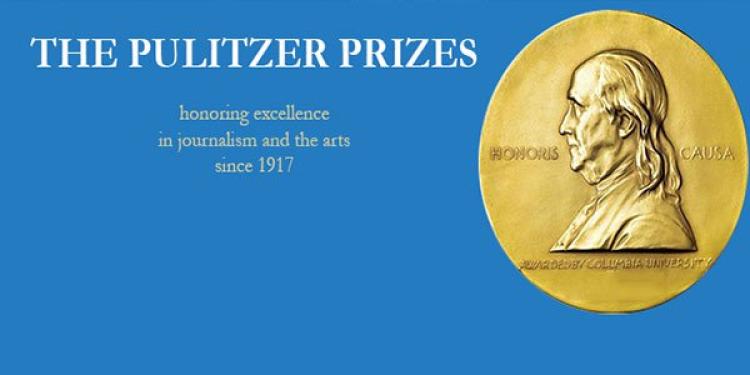Delving into the Depths of Who Won What and Why in the Journalistic Category of the 2014 Pulitzer Prize Winners (Part I)
Posted: April 9, 2015
Updated: October 6, 2017

This year’s Pulitzer Prizes in journalism will include 2 prizes going to online and print magazines.
With this year’s Pulitzer Prize Awards just around the corner, many are the hearts that race
just as they would, should they be betting on an online sportsbooks in US, to see who will capture the hearts of board members to win the prestigious Prize Awards. One can imagine how it will parallel and probably surpass last year’s fascinating and often gripping works which won the coveted awards. Speaking of which, let’s go back in time to see who got what last year.
Newspapers reveal that NSA spy on the American people
In the Journalism category two newspapers tied in the Public Service Category. The newspapers that filled out the criteria for distinguished example of exemplary public service, via the use of their journalistic resources, including the use of stories, editorials and cartoons. The other criteria involved photographs, graphics, videos, databases and multimedia, interactive presentations and other visual material, a gold medal were The Guardian US and The Washington Post.

The Washington Post was recognized for its exposure of widespread secret surveillance by the National Security Agency, which helped the public become aware of how such revelations fit into the larger scheme of national security. The Guardian US stole the spotlight as it also revealed extensive secret surveillance by the National Security Agency, igniting the ensuing battle about the State, Security and the right to privacy.
In the Breaking News Reporting category, the staff of The Boston Globe snapped up that award as it thoroughly and with force, covered the events of the Boston Marathon bombings. It also had coverage of the subsequent manhunt that had the city shaking. The staff highlighted the coverage with photography and a wide array of digital tools, hitting readers with a forceful impact of the tragedy.
Those indulging in internet betting, approved under US gambling laws, saw Jason Szep and Andrew R.C. Marshall of Reuters sweep away the International Reporting Category. They received critical acclaim for their bravery in reporting news on the abuse and tyranny that the Rohingya, a Muslim minority in Myanmar, where online internet casinos are forbidden, face everyday. They were also the victims of some of the most inhumane form of human-trafficking.
Food stamps – a mark of dependence and poverty
The investigative category had Chris Hamby of The Center for Public Integrity winning as he exposed corrupt lawyers and doctors who inhumanely refused to help coal miners suffering from black lung disease. This led the way to legislation enforced to help the victims.
As for Explanatory Reporting, Eli Saslow of The Washington Post was awarded that prize for his troubling reporting on the dependence of food stamps in post-recession America, which allowed readers realize the how history has repeated itself today with food stamps being a symbol of poverty and dependence. Will Hobson and Michael LaForgia of Tampa Bay Times were awarded the prize for Local Reporting in the Tampa Bay Times for their relentless investigation into the filthy conditions of the homeless which led to some reforms.
Meanwhile the National Reporting category only had eyes for David Philipps of The Gazette, Colorado Springs, CO whose articles deplored the condition and treatment of wounded combat veteran. Harrowing stories of hardships of those discharge by the Army for minor offenses, led to swift reaction from Congress.
Pulitzer Prizes Board to honor internet mags in 2015
Unfortunately, no one was deemed worthy of The Feature Writing award, alas not even those of the US gambling news clan. To date, the Pulitzer Prize competition had prohibited media that identified themselves as magazines, either in print or on the web. This year the Pulitzer Prize Board will recognize that magazines, digital and print can efficiently reach the heights normally reserved for daily and weekly journalism.
That said, the prize in the Commentary category was awarded to Stephen Henderson of Detroit Free Press for his columns on the financial crisis facing his hometown, written with rapture and “a stirring sense of place, sparing no one in their critique”. Meanwhile, Inga Saffron of The Philadelphia Inquirer turned out to be the best of the lot in the Criticism department for her critical overview of architecture as she wrote an eye-opening case that was easy to read, that showed her knowledge of civic pride and which never failed to yield reaction.
Under Editorial Writing the Editorial Staff of The Oregonian, Portland wrote lucid editorials inking their way to a sumptuous prize as they explained the critical but multi-facted issue of pension costs on the rise, causing readers to make the link between “the necessary solutions and their impact on everyday lives”.
Under the Editorial Cartooning category, Kevin Siers of The Charlotte Observer obviously drew some thought-provoking stuff depicting a sharp wit and bold artistic style that pleased the board.
Tyler Hicks of The New York Times showed compelling pictures that depicted skill and bravery as he documented the tyrannizing terrorist attack at the Westgate mall in Kenya as it emerged, step by step.
In the Breaking News Photography category, Josh Haner of The New York Times walked away with the Feature Photography Prize for his touching essay about a victim in the Boston Marathon bomb who lost both legs and who is now rehabilitating his life. So once again the world has seen and will see, come April 20, the recognition of the enduring influence of Joseph Pulitzer on the world of sensational journalism.












